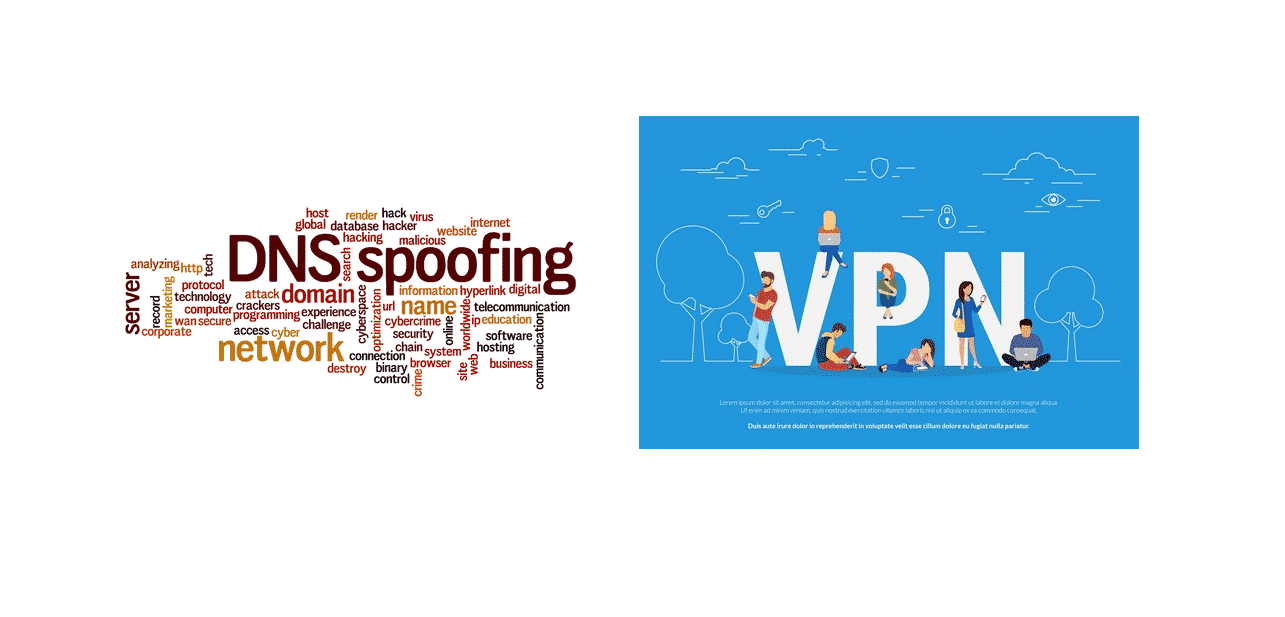
VPN vs IP Spoofing
VPNs and IP Spoofing are two concepts that are often confused with one another by people who aren’t familiar with the various intricacies of the internet but, in reality, these are two vastly different things that are used for entirely separate purposes.
VPN
A VPN, or Virtual Private Network, is a secured private network that’s designed to encrypt and secure incoming and outgoing traffic over the internet. It can essentially be thought of as a secure tunnel through which internet users can safely and securely browse and surf the internet without any major security concerns. The internet is a vast place and there’s no doubt that using it comes with various inherent risks such as your data being potentially monitored or your location being traced by those with malicious intent.
These threats can be quite dangerous but, fortunately, VPNs are able to protect against all these and they do so by routing all your internet traffic over a secured private network thereby ensuring that no malicious third parties can sniff your traffic or trace your location through information such as your IP address.
What’s great about VPNs is the fact that any worthwhile VPN service will fully encrypt your traffic so, even in case a third party was able to intercept the data packets being sent to and from your network, they wouldn’t be able to make much of them as the data would be encrypted and would be nothing but gibberish to the malicious third party aiming to breach it. Due to all this, VPNs are often regarded as one of the most secure ways of communicating over the internet so.
As awareness of staying secure while using the internet has gone up over the years, so has the presence of various VPN services. As of right now, there are multitudes of high-end VPN services that users can utilize in order to protect themselves while using the internet.
Most VPN services specialize in different aspects so, no matter what your needs and requirements are, you’re bound to find one that’ll meet them all perfectly. Some VPN services focus on keeping a user’s location secure and hidden, some focus on maintaining high speeds while providing routing over different countries, some are built for gamers who’d like to reduce their ping by rerouting their connection over a secure route and some offer a package of various services.
IP Spoofing
While VPNs are primarily used for the purpose of securing communications over the internet, IP Spoofing is often used for quite the opposite. Simply put, IP Spoofing is when someone spoofs, or masks, their IP address with that of another computer or source, and doing so enables them to perform various malicious tasks against unsuspecting systems and networks. Each packet of data sent over the internet has a specific destination address designating where it’s going and a source address designating where it’s coming from.
Perhaps the most common use of IP Spoofing is to bypass secure firewalls. Most secure networks typically have firewalls preventing any unrecognized source addresses from coming through but, through IP spoofing, these firewalls can be breached as they wouldn’t be able to recognize that the source of the particular data packet has been spoofed and isn’t, in fact, from a recognized source.
Due to this, if an attacker’s source IP has been placed on a blacklist by a particular firewall, it wouldn’t be able to actually thwart incoming attacks from that particular source if the attacker has successfully spoofed the source IP address.
Another malicious use of IP Spoofing is Man in the Middle attacks. These attacks are most common in crowded areas with public networks such as shops or airports where users tend to unsuspectingly connect to the open WiFi networks that are available.
In these attacks, the attacker essentially places themselves in the ‘middle’ of your device and the website or service that you’re communicating to through IP spoofing and, by doing so, they’re able to sniff all incoming and outgoing traffic from your device which, of course, is something that can have a devastating impact if you’re sending sensitive data such as banking details.
It’s key to remember that, while it certainly has a variety of malicious uses, IP Spoofing isn’t inherently illegal as the act of masking your IP is something that even VPN services for their protective measures.
Fortunately, there are ways to protect against malicious attacks that utilize IP Spoofing. Simply monitoring your network activity and looking for any atypical activity can give you insight regarding whether or not your network is vulnerable and, alongside this, there are several other measures as well such as ingress and egress filtering and Deep Packet Inspection.
It’s also worth highlighting that, as long as you’re visiting secure HTTPs websites, you aren’t at risk for an IP Spoofing attack as the traffic to these websites is secured through the TLS/SSL protocol so your connection will be encrypted at all times. VPNs are another effective way to shield yourself from IP Spoofing attacks.